News

With five ministers elected to serve in the U.S. House of Representatives in the newly sworn-in 117th Congress, the pathway from serving in a house of worship to public office hasn’t been uncharted. But it is unique.

The complaint, filed on behalf of Metropolitian AME church, alleges the attacks were part of “coordinated acts of violence.”
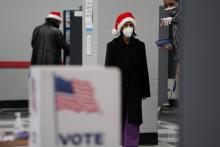
A federal judge on Monday ordered two Georgia counties to reverse a decision removing thousands of voters from the rolls ahead of Jan. 5 runoff elections that will determine which political party controls the U.S. Senate.
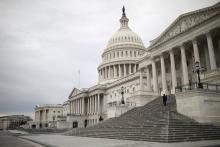
Democrats in the U.S. Congress on Monday will try to push through expanded $2,000 pandemic relief payments for Americans after President Donald Trump backed down from a fight with lawmakers that could have shut down the federal government.
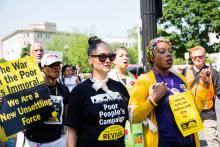
With less than a month to go until President-elect Joe Biden takes office, The Poor People’s Campaign has joined the Congressional Progressive Caucus in calling for a seven-part legislative agenda aimed at helping poor Americans amid the ongoing coronavirus pandemic.

In 2020, clergy and people of faith stepped up to provide presence at the polls and protect the vote.

In the wake of two devastating November hurricanes estimated to have killed over 90 people in Honduras, church-run albergues (shelters) across the Central American country have played a key role in housing thousands of people displaced from their homes. While these shelters provide essential care, health experts from faith-based and secular NGOS alike have warned that cramped living conditions, a lack of protective equipment, and the complete disruption of victims’ lives could lead to another wave of COVID-19 in the country, even those areas far from the epicenter of the hurricane damage.
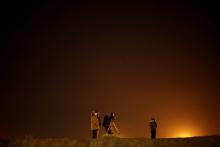
The evening sky over the Northern Hemisphere treated stargazers to a once-in-a-lifetime illusion on Monday as the solar system's two biggest planets appeared to meet in a celestial alignment that astronomers call the "Great Conjunction."

A statue of Black civil rights activist Barbara Johns, who played a key role in the desegregation of the public school system, will be installed in the U.S. Capitol Rotunda, officials said on Monday, replacing one of a leader of the pro-slavery Confederacy.

Web traffic slumps in mid-December, that’s just the way the internet works. And we — the people who make the internet, or at least, Sojourners’ humble corner of it — never much mind because we assume it means you are busy doing wholesome things like baking cookies, building snowfolk, or calling your elected officials to voice your support for the newest bipartisan COVID-19 relief bill.

President-elect Joe Biden will nominate Rep. Deb Haaland to serve as his interior secretary, according to a person familiar with the matter. Haaland, a Democratic congresswoman from New Mexico since 2019, would be the first Native American Cabinet secretary and the first to oversee the department, whose jurisdiction includes tribal lands.
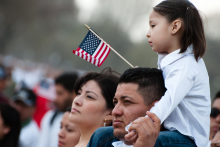
As the sun sets on each Election Day, people turn to exit polls to understand what happened and why. After the 2020 presidential election, exit polls suggested that outgoing President Donald Trump performed better among Hispanic/Latinx voters, earning reactions from pundits and former presidents alike. Some have suggested this is due to splits among Hispanic Catholics and Hispanic Protestants, but polls alone may not tell the full story.
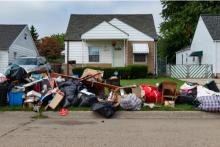
“There are a lot more people who are poor, but living above the poverty line,” said Anne Price, president of the Insight Center, an economic justice advocacy group based in Oakland, Calif. “The measure that we use is so antiquated, not just in how it calculates a household budget and what's left out, but also because it doesn't reflect real, contemporary lived experience, different household types, or regional differences.”
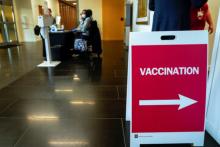
Initially, the available doses of the vaccine are limited; experts estimate that it could be months before the vaccine is available to most Americans. And for the incoming administration as well as public health experts, this raises a number of ethical questions, most importantly: Who should be the first to receive the vaccine?
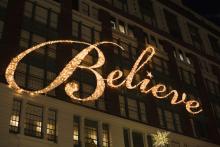
Believe it or not, here we are. In the 10 stories below, you’ll see people wrestling with — and sometimes accepting — all the changes life throws our way.

The U.S. Supreme Court on Thursday let three American Muslim men sue several FBI agents who they accused of placing them on the government's "no-fly list" for refusing to become informants, rejecting a challenge to the lawsuit by President Donald Trump's administration.

“We see giving women access to reproductive health care as being pro-life,” Manson said of Catholics for Choice, which was founded in 1973 by Catholics who believe that the faith tradition supports a person’s right to follow their conscience on matters of their own reproductive health.
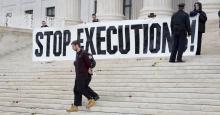
Today, 40-year-old Brandon Bernard is scheduled to be executed for a crime he was involved in at age 18. While Bernard was not the person who pulled the trigger on the two people murdered — that man, Christopher Vialva, was executed in September — he was eligible for capital punishment, which can only be handed down to legal adults.

As a COVID-19 vaccine gets closer to a public rollout, public health experts and policymakers in the United States are likely to encounter a big cultural barrier: Christian nationalism.
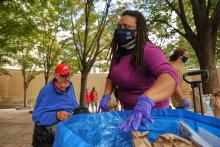
In November, Rev. Kim Jackson, an Episcopal priest, won a seat representing Georgia’s District 41 in the state Senate. Her election is celebrated as the first out LGBTQ person elected to Georgia’s state Senate — one of several that caught national attention for LGBTQ inclusion in politics. None of this, Jackson said, would have been possible without role models who taught her what she could become.